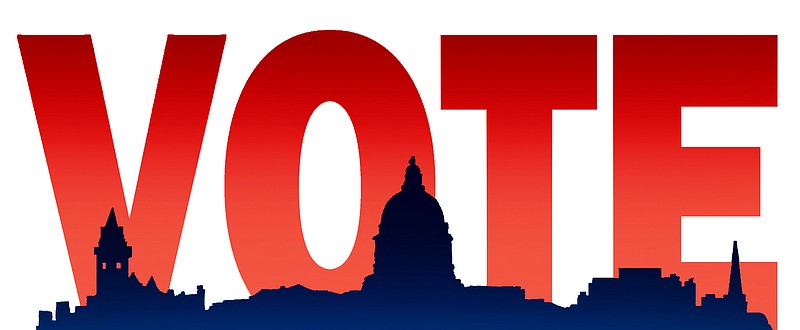On Nov. 6, Missouri voters are being asked to approve a 10-cents per gallon increase in the state's fuels tax, phased-in over a four-year period.
That issue, on the ballot as Proposition D, has more Missourians discussing the state's infrastructure needs.
We asked the three candidates for the 6th District Missouri state Senate seat for their thoughts on the issue.
As they appear on the ballot, the candidates are Republican Mike Bernskoetter, Democrat Nicole Thompson and Libertarian Steven Wilson.
The district represents seven counties: Cole, Moniteau, Morgan, Miller, Maries, Osage and Gasconade.
Bernskoetter and Thompson said "infrastructure" means more than just roads and bridges - the only things covered by the proposed tax increase.
Bernskoetter mentioned the Missouri River, trains and the power grid as additional parts of infrastructure, while Thompson also said it includes dams, waterways and the power grid.
Wilson said the term, "from a business standpoint," generally focuses on roads and bridges.
Bernskoetter and Thompson believe state government has a role to play in infrastructure improvement.
Wilson said government should be involved as little as possible.
Bernskoetter explained: "We put the transportation gas tax on the ballot this year, so hopefully, that will go a long way into helping out the roads and bridge system.
"And then, there's a lot of talk about ports, locally. If we get the port up and going around Jeff City, hopefully that will help with getting some of the trucks off the road and some of those things.
"All of those things work together."
Thompson said: "It's areas where a lot of it is inefficient for the private sector to fund and work on these things themselves - (where) there's no one group or person with any specific higher interest in infrastructure, that it would make sense for them to take it over."
State involvement, she said, is "something that's necessary for the state as a whole."
Wilson agreed with that idea.
"When you start to localize, you're going to get a much better perspective," he said. "I think that you need to let people in local areas start dictating what is happening, in their area."
Wilson repeated his belief Interstates 70 and 44 should be converted to toll roads, "that would be an investment in the state of Missouri because I know that a tollway is going to be in much better condition than a two-lane interstate."
But local roads - including many of the farm-to-market roads in rural areas - should be maintained by local people, he said.
"The things that could, actually, help all of the people of Missouri," Wilson said, "should be done by the state."
The candidates said improving Missouri's infrastructure also should help bring more businesses to the state and keep more businesses here that already operate in the state.
"If they're manufacturing a product, they need to get it on a train, on a boat or on the road, so, absolutely, they think that's one of the things that businesses look at - the same way with keeping your energy costs low," Bernskoetter said.
"That's another thing that businesses look at - making sure that we have an educated workforce."
He noted Mid-Missouri offers good higher education schools, including the University of Missouri-Columbia, Lincoln University and State Technical College in Linn.
Thompson said: "We have to find a way to fund these infrastructure improvements that we need.
"We have to look at ways that we can improve our system and work with businesses to ensure that they have the support that they need within our state."
Wilson said people he's talked with think Missouri's infrastructure is "antiquated."
And he said businesses will avoid the state's larger cities, because of the high crime and murder rates there.
"You need to give me a reason to invest in Missouri," he said, adding lawmakers' decision to reduce the state's tax on corporations was "a pretty good move."
Bernskoetter supports that tax change, but Thompson thinks it was a bad idea that's hurt the state's revenue picture and made it more difficult for the state to improve its services.

